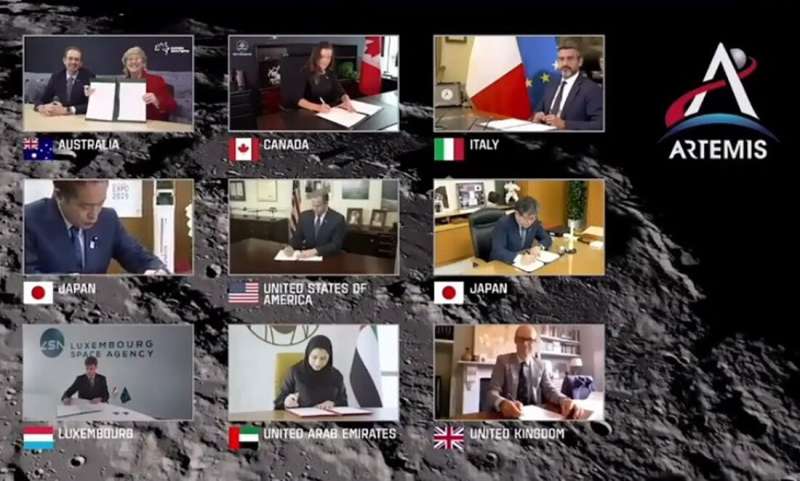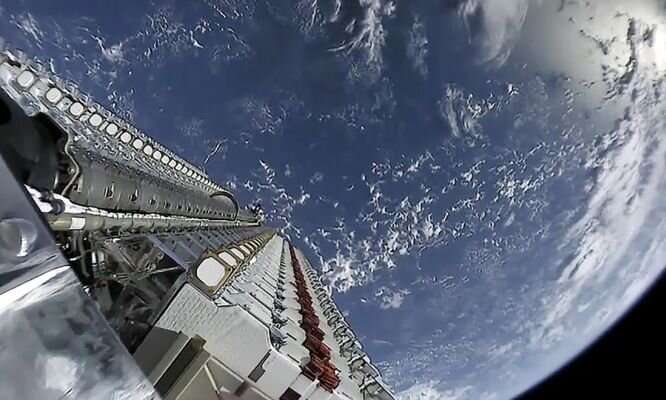Rockets are booming business
Businesses are taking up more and more space … in space. SpaceX launched a record number 143 satellites into space in January 2021.
Other companies, like Amazon and OneWeb, are building their own satellite megaconstellations, covering the world in hundreds of orbiting satellites.
"When the treaties were first drafted, they weren't contemplating commercial uses of space. So the liability rules were for countries," says Melissa.
"If I'm walking down the street and a satellite lands on me, I can't sue the person responsible. Only the Australian Government can do that on my behalf. Then the country responsible can choose to pursue the person who owns the satellite."
While a satellite falling from orbit and landing on you is unlikely (but not impossible, NASA's Skylab fell to Australia in 1979), space collisions and space pollution are real threats.
As space use grows, the need for rules for businesses and individuals grows. Two of the rulebooks being made include Australia's Woomera Manual and the United States' Artemis Accords.
But even by trying to put rules down, they create new problems.
Why is space diplomacy so tough?
The Woomera Manual collects all the international laws on space into one document. One of its main goals is to stop space wars from happening.
"The Woomera Manual gets criticized because, if you accept that there could be conflict in space, you are giving countries a license to conduct war in space," says Melissa.
"The other way to approach that is to say wherever humans are there's a potential for conflict. So it's better for us to have rules in place before that happens."
The other big document, which Australia signed on to last year, was the Artemis Accords. Started by the US, it brought together seven allied nations to build new rules on space.
Hunting for peace
The Artemis Accords have rules about how civilians can use space, how to protect important pieces of space history and how countries can work together peacefully.
But plenty of major countries didn't sign on: India, China and Russia refused. For them, it's a difficult diplomatic question.

By agreeing to an international treaty, they could be agreeing to things not in their best interests, but by not taking part, space law is being made without them.
"It's a good thing and a bad thing. In a sense, this is the US shaping international space law. That's what worries certain countries," says Melissa.
While it would be great if space was a domain of pure science, as humans, we're still tethered to Earth's history and issues.
And because of this, space needs experts on humans as much as it needs experts on rockets.
Explore further
This article first appeared on Particle, a science news website based at Scitech, Perth, Australia. Read the original article.



